The Chinese culture is so vast and wide that it should come as no surprise that there are so, so many different nuances to it. For example, when it comes to celebrating the Chinese New Year, I’ve noticed that a few of my Singaporean hometown traditions aren’t practiced here, which offer you a rather fun alternative to the typical local dumpling feast you might have taken part in one too many times.
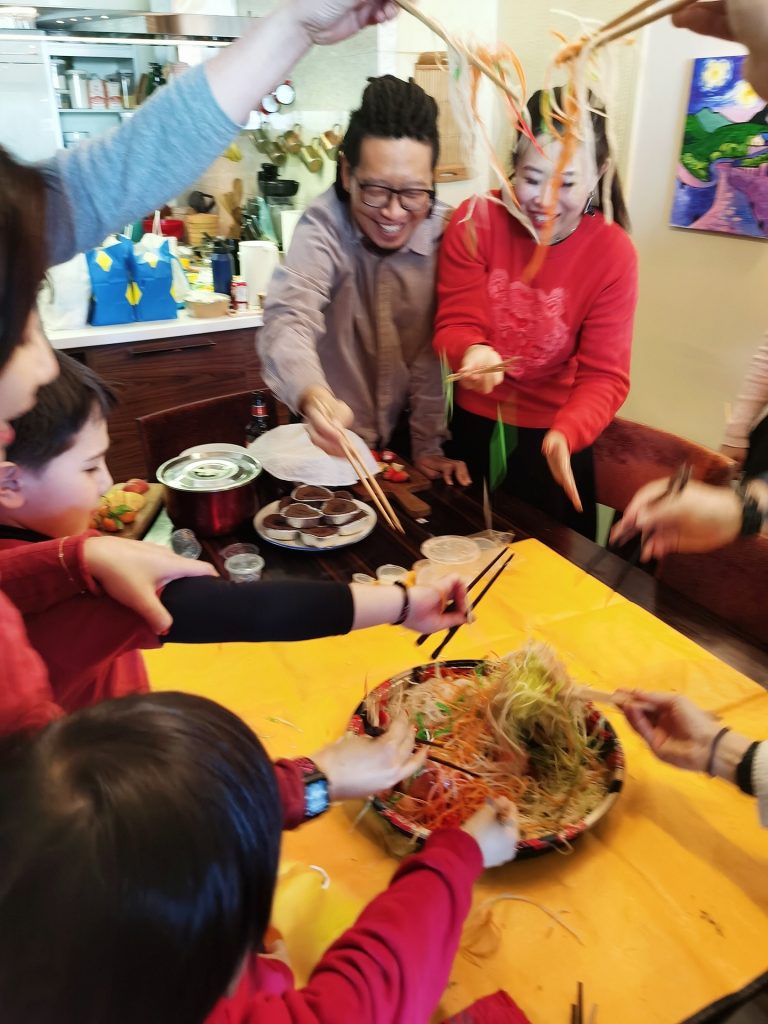
The tradition of “lo hei” (known as 鱼生 yú shēng in Mandarin) is a much beloved one where I come from. Yu sheng is a customary Singaporean and Malaysian Lunar New Year dish, traditionally served on the 7th day of Chinese New Year, which is known as 人日 Rén rì. Renri means “every man’s birthday” so everyone becomes a year older on this day. In the past, yu sheng was only eaten on ren ri, however these days it is normal for a family to eat yu sheng numerous times throughout the New Year period and it is usually served at the start of every meal. Watch the video below to see how you put yu sheng together and why it’s so fun!
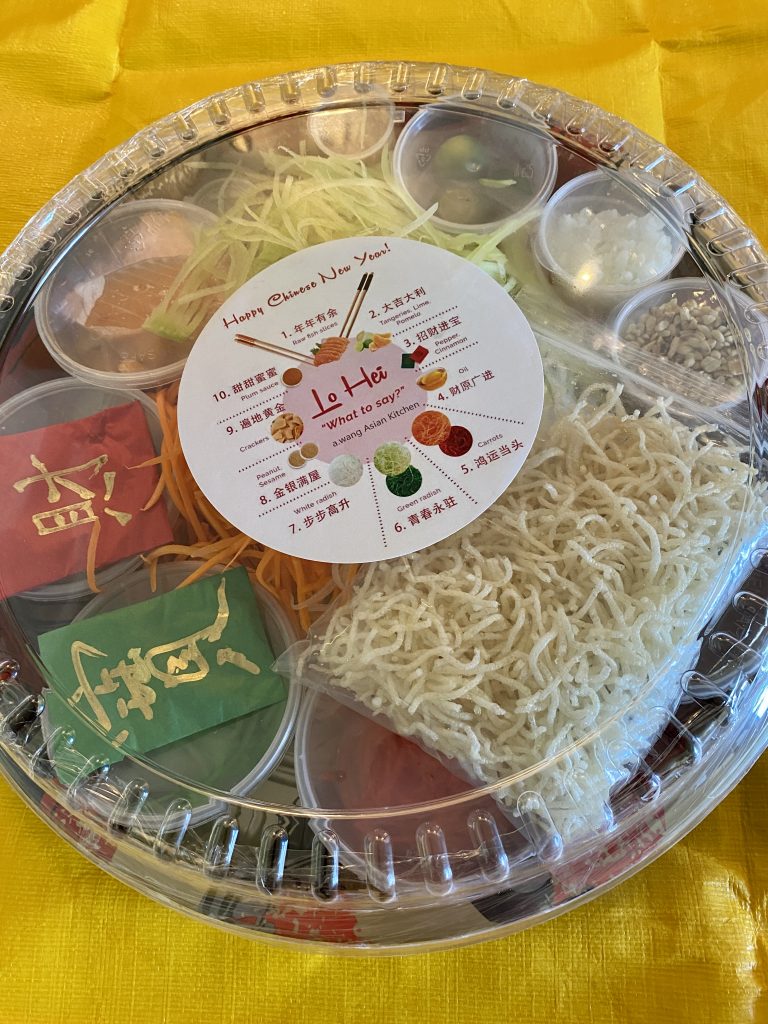
Comments from over the two years when I’ve introduced yu sheng to my friends include, “Wow this is exactly the opposite of what your mom says not to play with your food” and “It’s so delicious”. Plus, it’s almost vegetarian except for the salmon slices, so the kids will be eating plenty of nutritious stuff without knowing it.
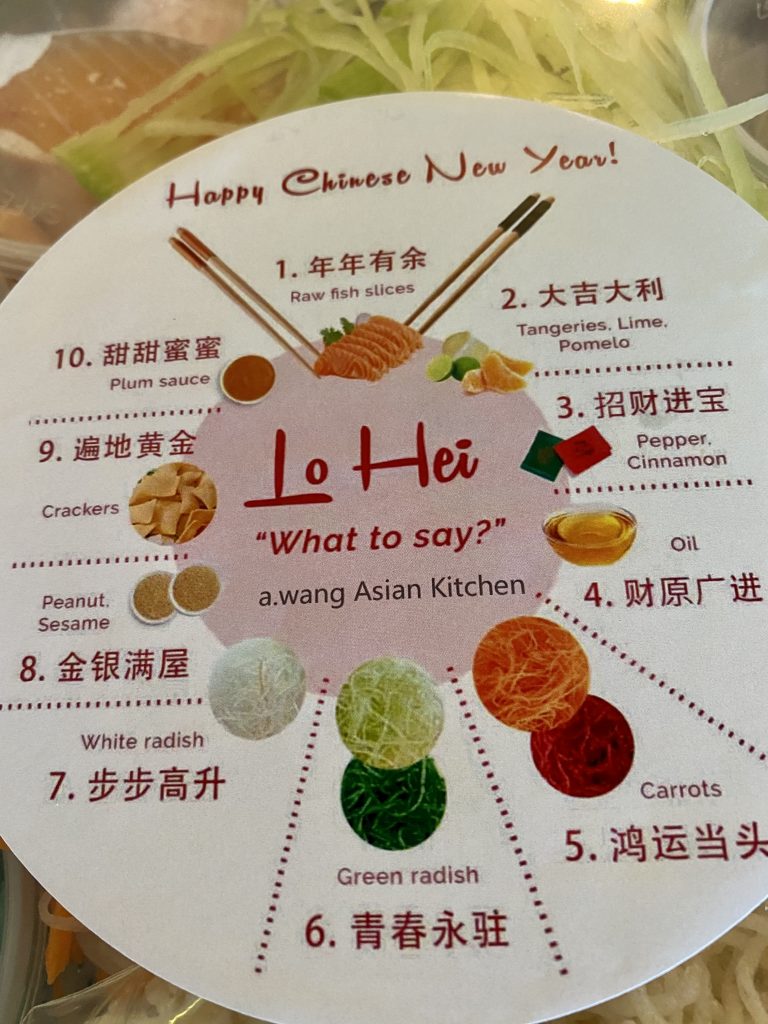
Basically, you add each ingredient – chosen symbolically for its color or what the food represents (for example, the salmon or “fish” is a homophone for “fortune” in Chinese, and the crackers resemble gold pieces) then you mix it all up by grabbing a chopstick full of the stuff and raise it up above your head as you make a whole lot of noise yelling well wishes for the new year, then eat it! When mixed up with the savoury plum sauce and crispy crackers, the whole ensemble really comes together for a delicious mouthful that even kids enjoy.
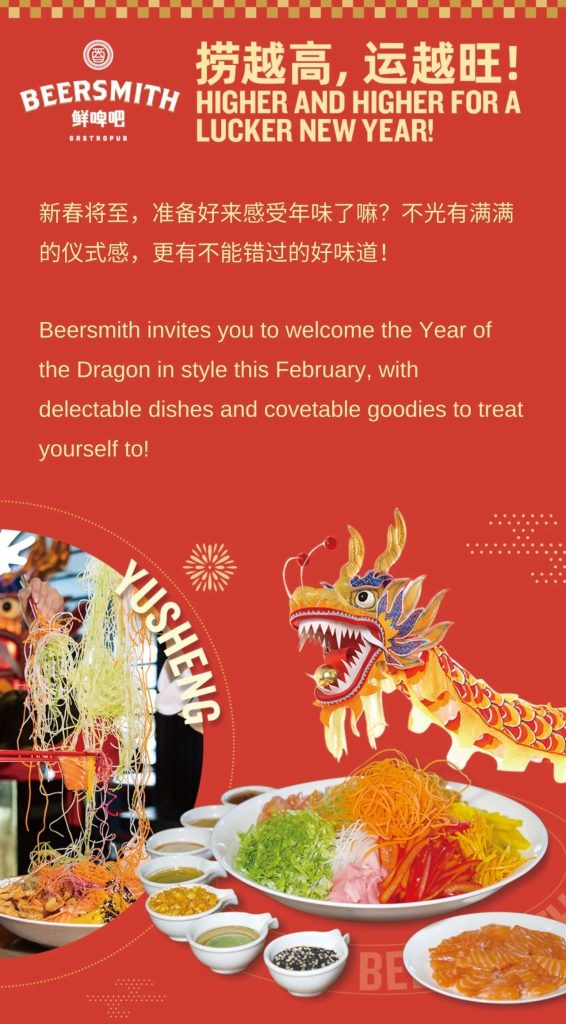
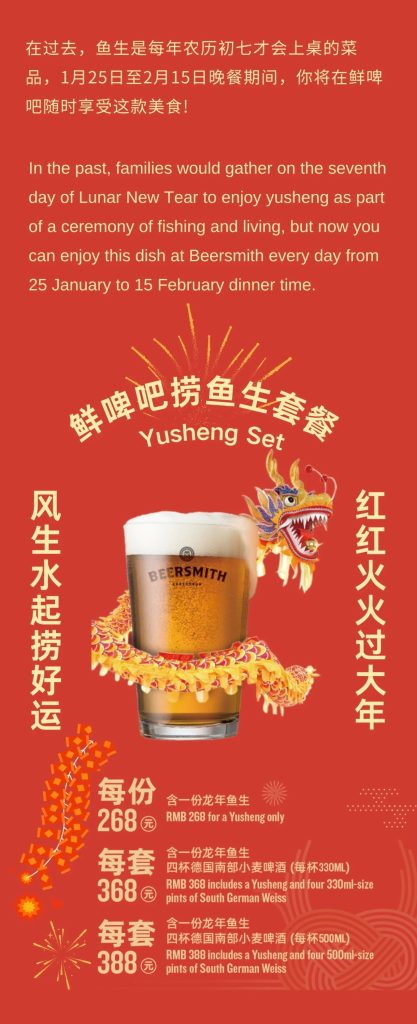
This Year of the Dragon, Beersmith is serving up yusheng with Norwegian salmon slices everyday from Jan 15 to Feb 25 at dinner time. Prices start from RMB268 for the yusheng itself, or you can opt for their special beer-pairings at RMB368 and RMB388. Scan the QR code below to book your yusheng dinner celebration at Beersmith!

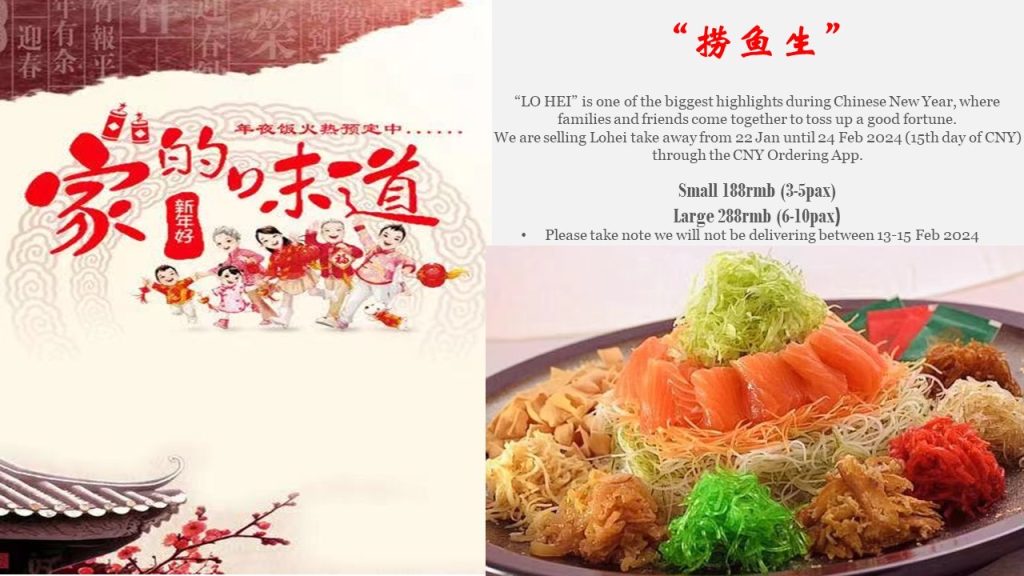
Alternatively, enjoy yusheng from the comfort of your home when you order your own set from the Singapore Foodie WeChat group from now until Feb 24. However please note that deliveries will not be available from Feb 13 – 16. Scan the QR code below to place your order!

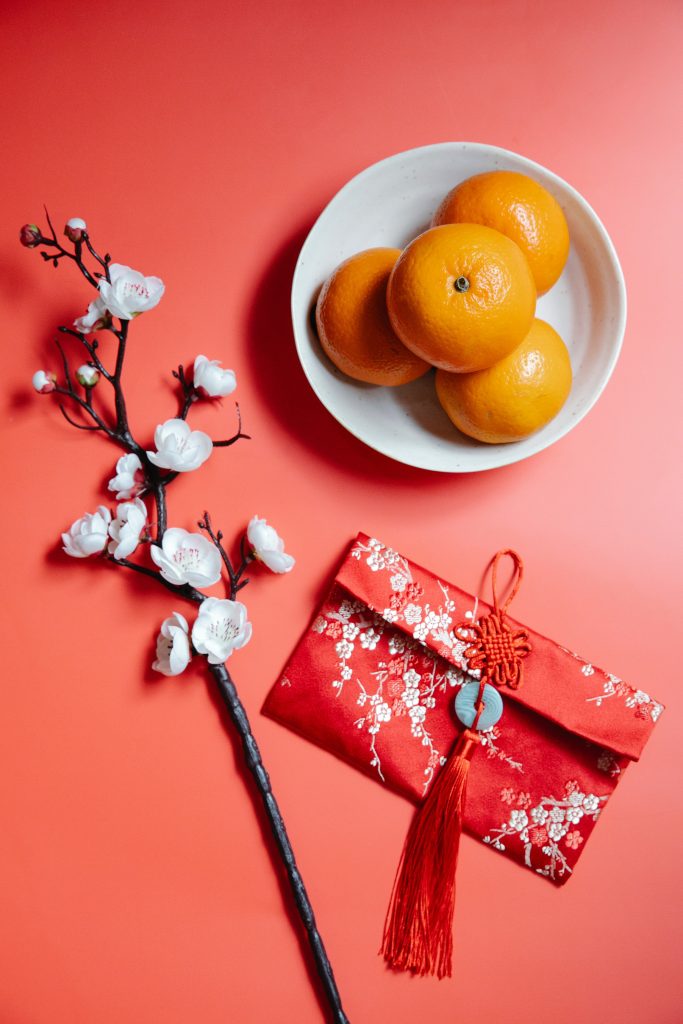
Another fun South Chinese tradition is how we give a pair of mandarin oranges to a host every time we’re visiting their home. We hold the oranges in our hands as we enter their domicile and greet them with well wishes such as the perfunctory “新年快乐 xīn nián kuài lè” or “恭喜发财 gōng xǐ fā cái“. The host will accept our oranges and well wishes, and offer us their own pair of oranges and well wishes in exchange! This whole process was what we call “bai nian” which is basically “visiting during CNY”. To up your CNY game this year, here’s a list of better well wishes you can say to different people in the year of the Dragon.
To anyone: “龙年大吉! Lóng nián dàjí!” (Wishing you luck in the year of the Dragon!)
For older individuals: “龙马精神! Lóngmǎ jīngshén!” (May you be as vigorous as dragons and horses!)
For couples: “龙凤呈祥! Lóngfèng chéng xiáng!” (Literal meaning: Dragons and phoenixes bring good fortune; Symbolic meaning: Have a harmonious marriage!)
For people focusing on their careers or students with major exams: “龙腾盛世! Lóngténg shèngshì!” (Dragons soaring in a prosperous era!)
For young kids: “龙头马尾! Lóngtóu mǎwěi!” (Literal meaning: Lead like a dragon, finish like a horse, Symbolic meaning: Have a good start and finish)
KEEP READING: What Traditional Foods Are Eaten During Chinese New Year in Beijing?
Images: Billy Jin, Vivienne Tseng-Rush, Pexels




